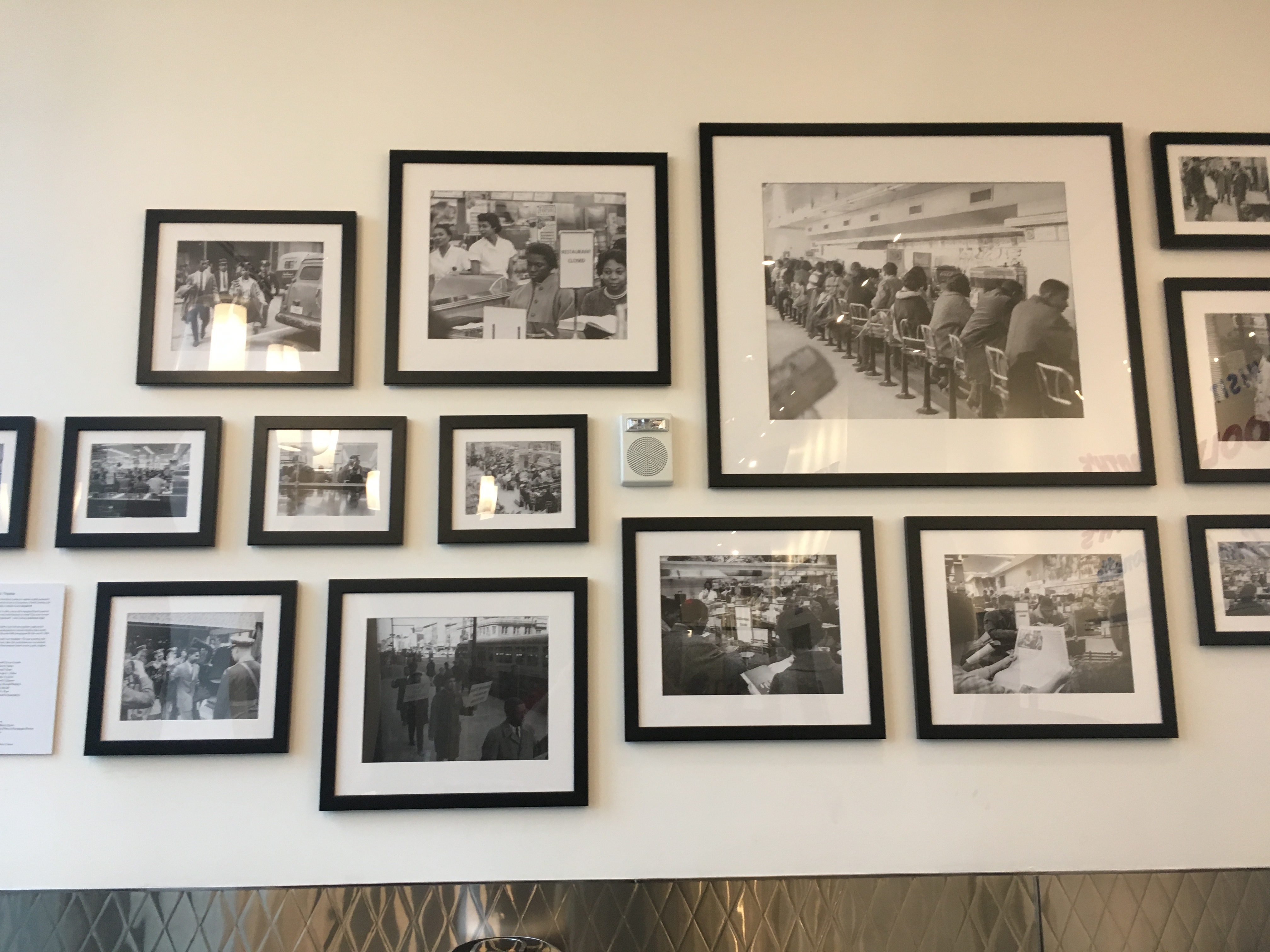I am writing tonight from Richmond, Virginia where Ginger is leading a group from First Congregational Church of Guilford UCC on our second annual Civil Rights Tour. The inaugural trip went to Birmingham, Selma, and Montgomery, Alabama. This year we are here along the James River in the town that was once the capital of the Confederacy.
This afternoon, we toured The Black History Museum and Cultural Center of Virginia that was filled with stories of those who stood up for their humanity in a number of different ways. One of the staff members told us the story of Henry “Box” Brown, an enslaved man in Richmond who got a friend of his to put him in a wooden packing crate that was three feet long by two feet eight inches deep by two feet wide and send him north to Philadelphia. The trip took twenty-seven hours, but he shipped his way to freedom.
Tonight, we went to the Pine Camp Arts and Community Center, which is run by the city of Richmond, to see the play Free Man of Color by Charles Smith that told the story of John Howard Templeton, the fourth African American man to graduate from the University of Ohio in 1828. The college president, Robert Wilson, is grooming Templeton to go and lead the nation of Liberia. What becomes apparent is Wilson doesn’t want Templeton to stay in America as an equal. Templeton completed his education, but never went to Africa. Instead he started schools in Ohio, Virginia, and Pittsburgh. The play was excellent and the performances were wonderful.
So many of the stories today we heard had notes of triumph, but they came in the middle of a melody of sadness and struggle, as well as hope and tenacity. Small stories that loom large, even though many have never heard them. But to see them as only inspirational is to sell them short. Henry “Box” Brown survived an amazing ordeal, but I couldn’t hear the story without thinking of those who have died in packing containers trying to get across the border. John Howard Templeton was highly educated and yet his degree and mastery of Latin, Hebrew, and Greek did not translate into equality. Today I heard the stories of America. Of humanity.
I feel both hope and heartache after hearing the stories I heard today. How can we be so far into human history and not have learned how to treat each other? How can we be almost two hundred and fifty years into our history as a nation and still be so unwilling to offer liberty and justice for all? Why is it so threatening to those of us born into privilege to think of sharing what we have?
One of the ways to think about Lent is to see it as a march to the Cross. I am not the first to say that one of the ways to look at the Cross is to see it as a lynching. Jesus was killed because he was unabashedly for the poor and marginalized. He knew the privileged lived in a house of cards that God would blow down. The hope of Easter is that the lynching was not the last word.
I believe with all of my heart that it will not be the last word in America either. Sam Cooke was right. A change gonna come.
Peace,
Milton
P. S. Here’s Sam.

Liberty and justice for all seems farther and farther away.
You captured the hope and heartache were all feeling Milton. That change is definitely got to come, the sooner the better.
This made me look up Sam Cooke. Thank you, Milton
You touch my heart and soul with your message. Thank you, Milton
Glad you appreciated “my” play. So much history in Richmond from Revolutionary period, Civil War through Civil Rights era. And also it is the birthplace of your godson!